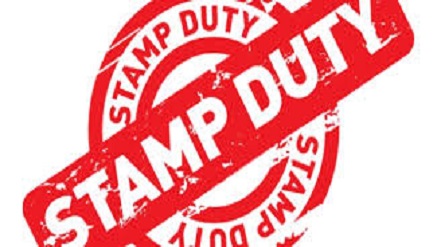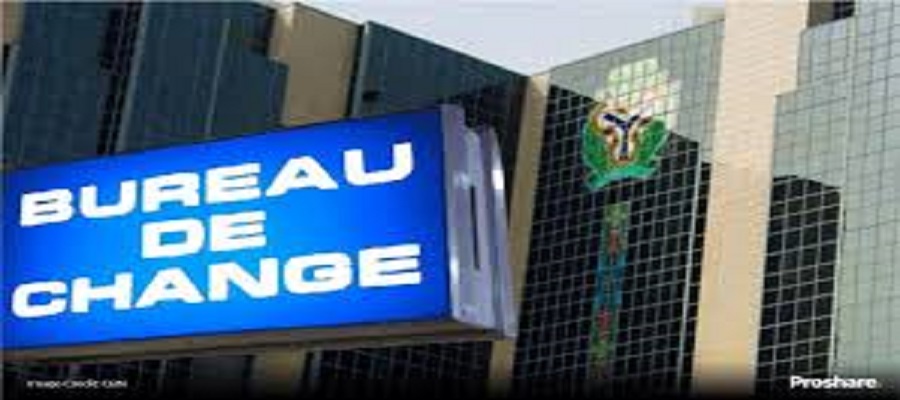E-Financial
SBH Raises Alarm over Non-Remittance N20trillion Deducted as Stamp Duty

Stamp Duty charges on bank transactions believed to have yielded N20trillion have developed wings and School of Banking Honours (SBH) has raised alarm, according to Nation.
Federal government through the Central Bank of Nigeria (CBN) on January 19 directed that N50 stamp duty be made on all transactions including bank electronic transactions above N1000.
The policy is aimed at boosting the country’s revenue base through non-oil sectors such as taxes and rates.
But the fortune raked in, has pitched the Nigerian Interbank Settlement System (NIBSS) against the School of Banking Honours, an institution registered by the Nigerian Copyright Commission (NCC).
The SBH is spearheading the recovery and remittance of the funds into the Federation Account for sharing by the Federal Government and the 36 states.
Tola Adekoya, SBH’s Project Consultant/Acting Rector, said based on findings from the research arm of SBH, he raised a Demand Notice dated 10th March, 2015, entitled, “Stamp Duty On Electronic Transfer Receipts (2013-2014)” on NIBSS for N7.719trillion as accruing and unremitted revenue to the Federal Government and the states.
He was invited by NIBSS for a discussion, but Adekoya is yet to honour the invitation.
“That invitation is traceable to the Demand Notice of 10th March 2015 that SBH raised on NIBSS as Stamp Duty of N7.7 Trillion due to 36 states and the Federal Government on electronic cash-less transfers which turned over an aggregate N160 Billion daily in just five states of the federation in early 2013, as reported by Central Bank Nigeria (CBN),” Adekoya said.
He told The Nation that from all indications, that figure may have risen close to N20trillion.
He said: ”Further reports revealed that the Stamp Duty revenue has now increased to N20trillion (in local banks), or $53.3 billion (in foreign banks) in four years to 31st March, 2017, and out of which less than one per cent was later swept into a dedicated account with Central Bank of Nigeria, in 2016.”
To him, the matter of diverted public fund should be of serious concern to the public in view of the amount that is in contention and the involvement of agencies and persons allegedly denying governments of such huge revenue collected from the unsuspecting banking public and for appropriate disciplinary action to be taken.
By its Memorandum of Association, the SBH is approved to research into banking operations, and collaborate with banks and government on banking matters. It is empowered to represent government in the suit under its Copyright Certificate No. LW1023 dated 27th September 2012, and titled, “50-Naira Stamp Duty for Government on Electronic Cashless Transfers and Manual Bank Teller Deposits”.
Adekoya said the alleged diversion of public funds should be of serious concern to the public in view of the amounts involved, and the culpability of agencies and persons that have been denying government of such huge revenue collected from unsuspecting banking public, for appropriate disciplinary action.
He said the SBH had approached the CBN in 2012 to partner on the research outcomes that would absorb retrenched and ex-bankers to lead its young emerging bankers on practical part-time banking jobs at a lower career level that is branded as “Shadow-Banking”.
“SBH clarified that Shadow-Banking products would birth other Shadow Industries to absorb the youth in high volume, until vacancies exist in their target career sectors, and for which they could be employed,” Adekoya said, adding that the SBH offer was turned down by the CBN, hence the body later aligned its job creation activities with CBN’s Financial System Strategy (FSS) 2020, but the CBN did not complement this, either, he stated.
Undeterred, Adekoya said, “the Institute then proceeded with a proposal to Nigerian Postal Services (NIPOST) on 20th April 2012 to increase its internal revenue by exploring a narrow window provided for affixing adhesive stamp on banking receipts in Stamp Duties Act 2004, and a Master Services Agreement was signed by both parties on 14th September 2012”.
“The institute then reverted to CBN on its first research work by a letter dated 27th September 2012, titled, “Revenue Collection for Government through Banks”, requesting for approval to engage banks and other financial institutions as collecting agents on the stamping and remittance of Stamp Duty on manual and electronic transfer receipts from N1,000 ( inclusive of all those from below N500,000 that CBN had earlier set as limit for banks) into government coffers,” the report said.
The SBH got approval letters from the CBN. Its two defined roles were firstly to affix N50 stamp as evidence of Stamp Duty Paid on bank receipts, as covered by the Master Services Agreement with NIPOST, and secondly to sweep Stamp Duty Revenue to government, as duly covered by the Copyright Certificate No. LW1023.
Based on the CBN approvals, the institute secured written commitments from three banks to lead other banks on manual stamp duty collection for government.
Adekoya said since “NIBSS needed no such circular on electronic stamp duty collection for the government, because it runs a central operation, it joined the institute at a press conference on 4th January 2013 to support the government’s revenue project, and was engaged as the ‘official sweeping agent’ for government on 7th January 2013.”
He said the government directed that the only thing we should not charge stamp duty on is naira currency. “We went to Nigeria Interbank Settlement System (NIBSS), which is the firm maintaining the portal for cash-less policy for all the banks. By January 2013, we were ready to run it. Since 1993, NIBSS has not remitted any stamp duty to the government,” Adekoya, said.
E-Financial
CBN Waives 2025 Licence Renewal Fee for Bureaux de Change Operators

Central Bank of Nigeria (CBN) has waived the 2025 licence renewal fee for all bureaux de change (BDC) operators.

Jonah Onojah, director of the financial policy and regulation department, announced that the waiver took immediate effect.
“This is to inform all existing bureaux de change that further to the Regulatory and Supervisory Guidelines for Bureau De Change Operations in Nigeria, 2024, and the ongoing transition to the new BDC regulatory structure, the Central Bank of Nigeria (CBN) has approved the waiver of 2025 licence renewal fee, effective immediately,” the statement reads.
“Any bureau de change that has paid for 2025 licence renewal is hereby advised to apply to the Director, Financial Policy and Regulation Department, Central Bank of Nigeria for refund to its account from which the payment emanated.
“The CBN remains committed to fostering stability, transparency, and efficiency in the foreign exchange market while ensuring that operators align with the revised regulatory framework,” the statement said.
On May 22, 2024, CBN approved new guidelines for BDC operations to improve compliance and oversight.
In the guideline, CBN said all existing BDCs are to re-apply for a new licence according to any of the tiers or licence categories of their choice.
CBN said the guidelines are part of its efforts to re-position the BDC market to play its envisioned role in the foreign exchange market in Nigeria.
E-Financial
PalmPay is not a Loan App, says MD

PalmPay, a Mobile Money Operator and digital payment platform has reaffirmed its role as a mobile payment provider, correcting the insinuation that it is a loan App.

Chika Nwosu, Chief Executive Officer, PalmPay, speaking at a press conference in Lagos clarified that PalmPay’s core mission is to provide seamless payment solutions and financial services, not to issue loans.
This clarification became necessary against erroneous messages in some social media platforms that the PalmPay is a loan App, as well as individuals wearing PalmPay-branded clothing allegedly been involved in arresting loan defaulters, raising concerns about the company’s role in debt recovery practices.
He explained that all lending activities on its platform are conducted by third-party financial institutions leveraging its ecosystem, not PalmPay itself.
“PalmPay is not a loan App. We provide a platform for third-party financial institutions to offer their services, including loans, to our users. These institutions operate independently and comply with all regulatory requirements,” Nwosu explained.
More so, Chika Nwosu identified smartphone penetration, internet connectivity and innovative technologies as key factors that are crucial to increased access to mobile money services in Nigeria.
According to him, with smartphone penetration projected to reach 65% by 2026 as well as improved internet infrastructure, more Nigerians will be enabled to access mobile money services.
He disclosed that, with fintech companies such as PalmPay evolving through digital wallets and seamless payment gateways, accessibility to mobile money service was bound to expand soon.
He emphasized that with demand for affordability of financial services growing, more opportunities would be unlocked for PalmPay in the nearest future.
“From under 10,000 agents in 2015 to over 1.5 million agents in 2023, agent networks have become the backbone of mobile money operations in Nigeria. For this reason, we are more likely to see a sharp increase in the number of mobile money agents and merchants. Apart from that, MMOs will increasingly use artificial intelligence to improve customer experiences, such as machine learning, predictive analytics, and fraud detection,” he said.
Donald Ubeh, Head, Risk and Compliance, MLRO at PalmPay, while highlighting the impact of fintech companies such as PalmPay, explained that the coming of PalmPay has led to economic empowerment particularly for individual users and several Small and Medium Scale enterprises.
He noted that many Nigerians including bank customers have migrated their funds to PalmPay owing to convenience and accessibility it provides.
He added that mobile money operators were conceived with the aim of driving financial inclusion for the underserved and unbanked population.
According to EFInA, increasing adoption of fintech companies by Nigerians has led to increase in financial inclusion rate by 13% in 13 years.
E-Financial
Moniepoint MFB Says Rumours of N1.1Bn Theft by Hackers Malicious

Moneipoint has denied reports that Moniepoint MFB, its microfinance bank, was hacked and some N1.1 billion allegedly stolen.

Moniepoint, in a blog post said that the report, which began on social media was malicious and misleading and should be ignored.
According to the company, the alleged theft gained traction on social media, alleging that the company is facing operational challenges due to the hack.
“We categorically state that these claims are untrue, and we urge the public to disregard them in their entirety.
Moniepoint MFB has always maintained the highest standards for digital security and customer fund protection.
It stated that as a duly authorised and licensed financial institution, customer deposits with Moniepoint MFB are insured by Nigeria Deposit Insurance Corporation (NDIC), with the Central Bank of Nigeria (CBN) supervising and regulating its operations to ensure adherence to all applicable standards.

 E-Financial1 day ago
E-Financial1 day agoMoniepoint MFB Says Rumours of N1.1Bn Theft by Hackers Malicious

 General News1 day ago
General News1 day agoCourt Orders Arrest of Access Bank Acting MD, Others over Alleged Theft of Property

 Telecom1 day ago
Telecom1 day agoSERAP Drags Tinubu, Others to Court over ”Arbitrary” Telecom Tariff Hike

 E-Financial1 day ago
E-Financial1 day agoWorld Bank Urges CBN to Sustain Inflation Control Measures

 Telecom1 day ago
Telecom1 day agoFG, WIOCC Partner to Deliver Internet to 3m Homes with $10m Investment

 E-Financial1 day ago
E-Financial1 day agoZenith Bank Reinforces Commitment to Staff Wellbeing with Salary Hike and Promotions

 E-Financial1 day ago
E-Financial1 day agoSEC Warns against Transactions with Risevest, Stecs Cooperative Societies

 News1 day ago
News1 day agoARCON to Sanction Perpetrators of Misleading Adverts















